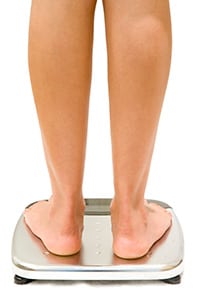A bariatric surgeon is a medical specialist who performs procedures designed to help severely obese people lose weight. At our center, we provide patients with access to a top bariatric surgeon in Orange County. Board-certified surgeon Dr. H. Joseph Naim has:
- Performed several weight loss procedures
- Is committed to helping patients see results and live healthy lives


 Gastric Band: The
Gastric Band: The  The surgeon then cuts the duodenum or first part of the small intestine off the stomach’s outlet and sews the distal or last part of the small intestine into its place. As a result, the food bypasses three-quarters of the small intestine. Those three-quarters, however, contain pancreatic enzymes and bile that the patient will need to break down and absorb fat and protein. The surgeon therefore attaches that intestine to the distal small intestine. The BPD/DS enables patients to lose 60 to 70 percent of their excess weight, and it reduces the absorption of fat by at least 70 percent. The surgery is especially helpful for people with diabetes. Weight loss results vary for this procedure as well.
The surgeon then cuts the duodenum or first part of the small intestine off the stomach’s outlet and sews the distal or last part of the small intestine into its place. As a result, the food bypasses three-quarters of the small intestine. Those three-quarters, however, contain pancreatic enzymes and bile that the patient will need to break down and absorb fat and protein. The surgeon therefore attaches that intestine to the distal small intestine. The BPD/DS enables patients to lose 60 to 70 percent of their excess weight, and it reduces the absorption of fat by at least 70 percent. The surgery is especially helpful for people with diabetes. Weight loss results vary for this procedure as well. The various surgical techniques used have all enabled people to lose a substantial amount of weight.
The various surgical techniques used have all enabled people to lose a substantial amount of weight.  Bariatric surgery is for extremely obese people who have been unable to lose the needed weight through more conventional and less invasive methods like diet and exercise. If a person is otherwise healthy, they are considered a candidate for bariatric surgery if they have a
Bariatric surgery is for extremely obese people who have been unable to lose the needed weight through more conventional and less invasive methods like diet and exercise. If a person is otherwise healthy, they are considered a candidate for bariatric surgery if they have a 










